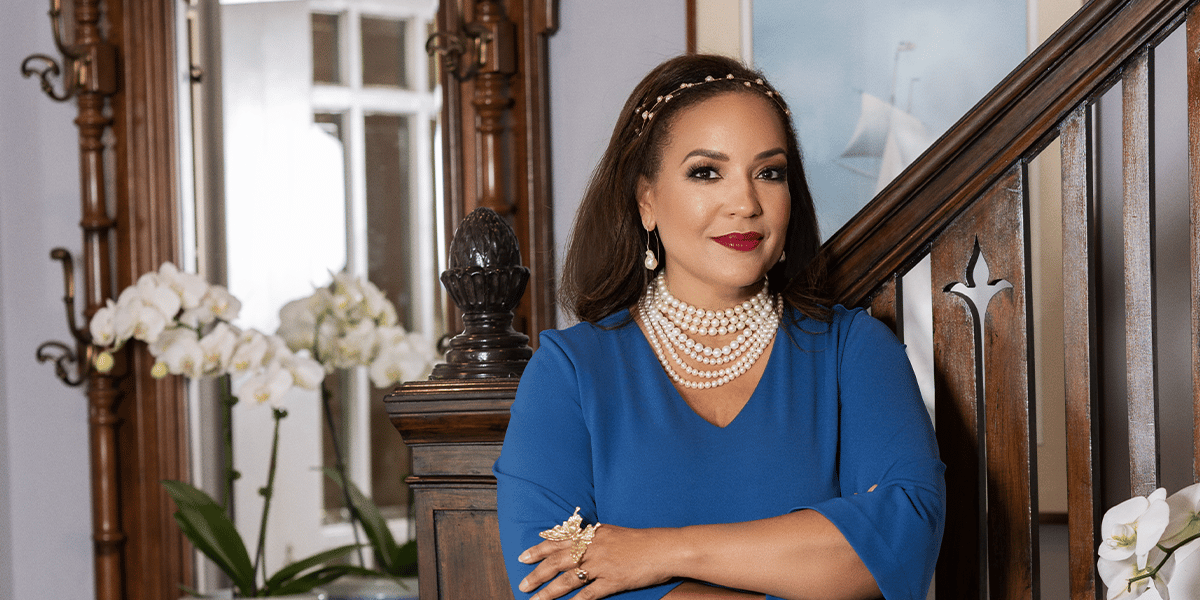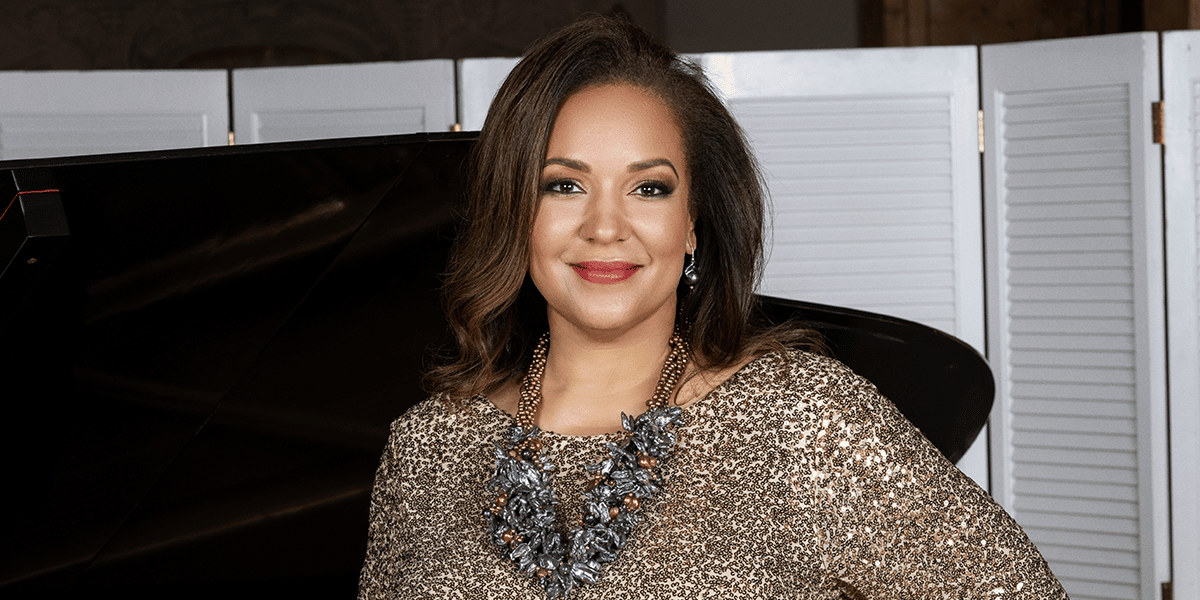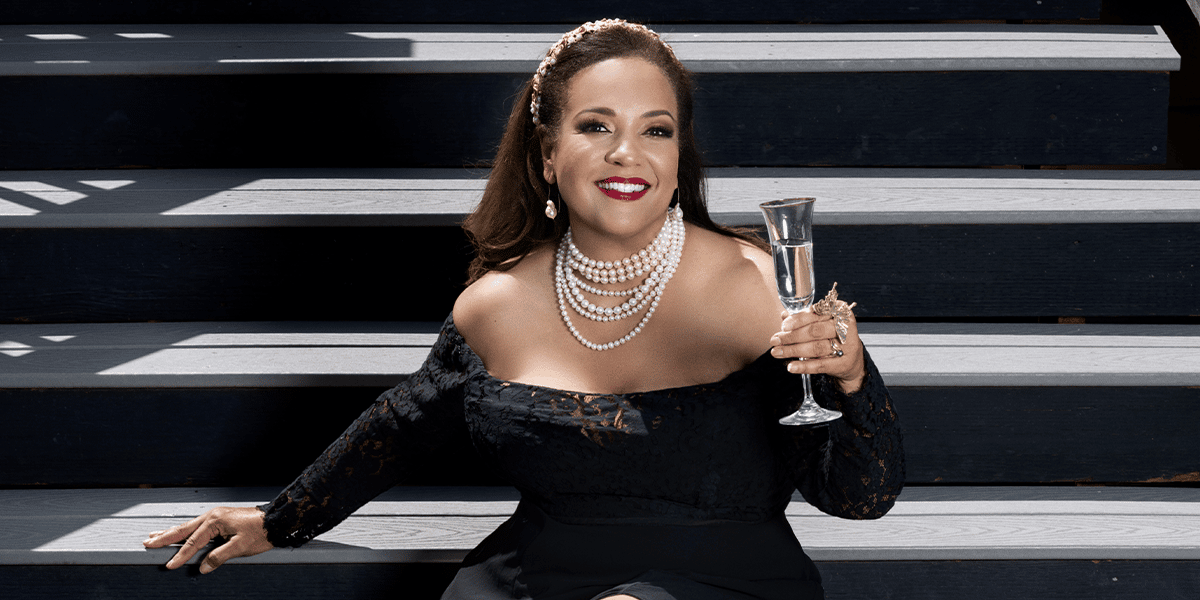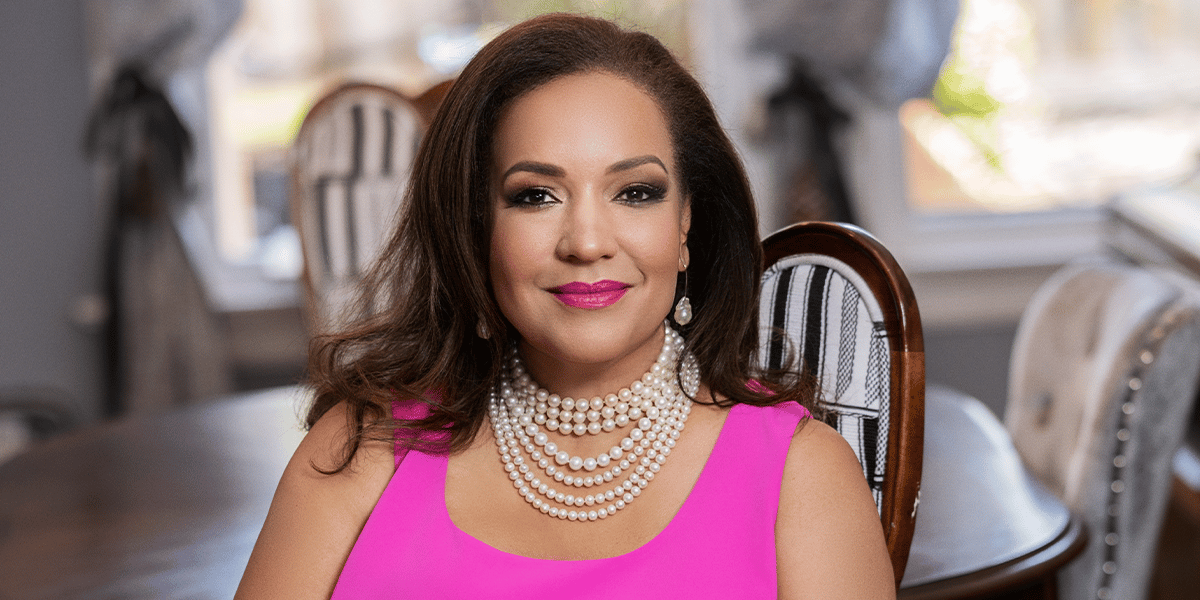Karen Valentia Clopton
Human Rights Commissioner, Attorney, Administrative Judge, Civil Rights Leader, Author, Speaker, Mother, and Friend
It’s All About Commitment and Passion
An award-winning trailblazer, Commissioner Karen Clopton is a champion of human and civil rights, a distinguished attorney, forceful speaker, organizational expert, and former Chief Administrative Law Judge.
Serving in executive leadership and board roles for highly regulated public, private, and non-profit organizations, she has overseen policy, ethics, finance, operations, and human resource risk management. Nationally recognized as a civic leader and humanitarian, Commissioner Clopton’s vision and expertise have changed laws, created programs, and positively impacted the bottom line.
She is interested in the arts and nature and collects friends in the blink of an eye. Karen draws people to her, people who want to soak in her kindness and wisdom; she is motivated by her two brilliant daughters to leave the world a better place.

INTERVIEW BY HEIDE VANDOREN BETZ / LUXURY TRENDING
Luxury Trending: Tell us about your personal background.
Karen Clopton: I grew up in the segregated South―South Central Los Angeles that is. My parents were refugees from the Confederate States of America, Arkansas, and Texas, fleeing violence and subjugation in 1939 in the Great Migration described by Isabel Wilkerson in “The Warmth of Other Suns.” I grew up in a multi-generational/multi-hued family of strivers on a lovely tree-lined street with manicured lawns and homeowners who took pride in their houses and looked after their neighbors.
LT: What/who inspired you initially to enter the world of law?
KC: Education was prioritized in our house, reading, debating, and discussing current affairs. My father insisted that I read the newspaper every day and at dinner, he would quiz me about what I had learned. In those days before the internet, the encyclopedia was the fount of knowledge. We had the World Book. We also had the library and the many Los Angeles County museums. There were many conversations about what I might choose for a profession but usually narrowed down to whether I would become a lawyer or a doctor. I have always been passionate about social justice and I noticed that lawmakers, politicians, and judges were often lawyers.
LT: What was your first job?
KC: My first job at age 15 was for the Los Angeles District Attorney’s Office Youth Advisory Board as a member and Community Aide. The DAYAB was an outgrowth of the Watts Riots. It was also the beginning of my legal career trajectory.
LT: You are a recognized and respected national leader of civil and human rights. You have an impressive resume of government Commissions, Boards, and Task Forces. Have you always felt a calling for public service? When did this begin and why?
KC: My parents instilled in me from an early age the importance of giving back, doing my best, and sharing the abundance we had.
LT: Your Bar Admissions include the United States Supreme Court. Have you appeared before our highest Court?
KC: I have not yet appeared, but I’m proud to have been
admitted and to have access.
LT: What do you think the duty of the Supreme Court should be?
KC: The duty of the highest court is the same as every court and that is to apply the law to the specific facts in each case objectively, with integrity, and without regard to personal bias.
LT: Can the Supreme Court justices actually avoid the influence of partisan politics, being their appointments are highly politicized?
KC: The Supreme Court has always been political and their decision-making has been fraught with insidious racist and white supremacist beliefs and edicts.
Examples include the infamous Dred Scott decision:
In March of 1857, the United States Supreme Court, led by Chief Justice Roger B. Taney, declared that all blacks—slaves as well as free―were not and could never become citizens of the United States. The court also declared the 1820 Missouri Compromise unconstitutional, thus permitting slavery in all of the country’s territories.
The case before the court was that of Dred Scott v. Sanford. Dred Scott, a slave who had lived in the free state of Illinois and the free territory of Wisconsin before moving back to the slave state of Missouri, had appealed to the Supreme Court in hopes of being granted his freedom.
Taney—a staunch supporter of slavery and intent on protecting southerners from northern aggression―wrote in the Court’s majority opinion that, because Scott was Black, he was not a citizen and therefore had no right to sue. The framers of the Constitution, he wrote, believed that Blacks “had no rights which the white man was bound to respect; and that the negro might justly and lawfully be reduced to slavery for his benefit. He was bought and sold and treated as an ordinary article of merchandise and traffic, whenever profit could be made by it.”

LT: Any comment on today’s Supreme court make up of justices?
KC: Sadly, today’s Supreme Court does not represent the majority of Americans in many significant ways, including more enlightened views on privacy, racial equity, reparations, reproductive rights, gender equality, and the role of corporations in elections. It lacks religious diversity—a majority are Catholic and less than 23% of Americans practice Catholicism; ethnic and geographic diversity. Most importantly the current majority has entirely dropped even the pretense of fairness, objectivity, and nonpartisanship.
LT: You have many impressive awards from the American Bar Association and other Civic and Public organizations. Will you share a story about one of two of these awards?
KC: I’m very proud to have received two national awards from the American Bar Association: the first in 2010, Mary C. Lawton Award for Outstanding Government Service, and in 2017, Robert B. Yegge Award for Excellence in Judicial Administration.
Both were bittersweet since the American Bar Association founded in 1877 notoriously banned African Americans from its ranks and did not admit its first Black member until 1950. Both of these awards were meaningful to me because I was nominated by several of the judges I managed as the Chief Administrative Law Judge of the California Public Utilities Commission and then chosen by national Ba4 leaders for special recognition. Both times my commitment to diversity, integrity, inclusion, and innovation was noted. As a result, I was elected to the National Association of Administrative Law Judiciary’s Board of Governors for three terms. I’m very proud to continue to work for the independence, integrity, and diversity of the administrative judiciary in the face of partisan and transactional politics, greed, and corruption.
LT: You serve on the Human Rights Commission. Please tell us about the background of this organization.
KC: The roots of HRC go back to 1964 when the modern-day civil rights movement manifested in San Francisco through demonstrations against hotels, supermarkets, drive-in restaurants, and automobile showrooms that discriminated against African Americans. In early 1964, Mayor John F. Shelley appointed an Interim Committee on Human Relations, which subsequently recommended to the Board of Supervisors that a permanent Human Rights Commission be established. In July 1964, the Board of Supervisors passed the recommendation, and Mayor Shelley signed an ordinance establishing the Human Rights Commission. From 1964, the Human Rights Commission grew in response to the City government’s mandate to address the causes of and problems resulting from prejudice, intolerance, bigotry, and discrimination. The Mayor and the Board of Supervisors gave the Human Rights Commission more and broader powers and duties to address these problems and passed additional ordinances, which were implemented by the Human Rights Commission. In June 1990, the voters of San Francisco established the Human Rights Commission as a Charter Commission (see Section 3.699-5 of the Charter).
LT: As Human Rights Commissioner how do you view the state of Human Rights in our city; what can each of us do to make an impact?
KC: The most pressing concern is income inequality which impacts housing, the administration of justice, healthcare, and educational opportunities. As citizens, we must provide for each other and commit to universal basic income, healthcare, dignified housing, and meaningful employment. We cannot become a city of only the wealthy with a service class who commutes in and the poor and mentally ill living on the street.
LT: What are the responsibilities and tasks involved in being Human Rights Commissioner
KC: For over 50 years, HRC has grown in response to San Francisco’s mandate to address the causes of and problems resulting from prejudice, intolerance, bigotry, and discrimination. Members of the Commission advocate for human and civil rights;
investigate and mediate discrimination complaints;
resolve community disputes and issues involving individual or systemic illegal discrimination; and provide technical assistance, information, and referrals to individuals, community groups, businesses, and government agencies related to human rights and social services. I’m honored to have been appointed by the first African American woman Mayor London Breed and twice elected by my colleagues to serve as Chair.
LT: As Human Rights Commissioner how do you view the state of Human Rights in our city; what can each of us do to make an impact?
KC: The most pressing concern is income inequality which impacts housing, the administration of justice, healthcare, and educational opportunities. As citizens, we must provide for each other and commit to universal basic income, healthcare, dignified housing, and meaningful employment. We cannot become a city of only the wealthy with a service class who commutes in and the poor and mentally ill living on the street.

LT: As a ” first world” nation we suffer from so much violence and racial, social, and economic inequality. Will this ever stop and how?
KC: Our country was founded on extreme violence and greed: the theft of land from the native people and the kidnapping and enslavement of Africans and their descendants. We cannot break free from the past unless we acknowledge it and make amends. Segregation persists because of the over three hundred years of racial purity laws enacted to create and enforce a racial caste system from 1641 to 1967 based on pseudo-scientific racist ideas. We can only move forward with collaboration. Under the guidance of tribal leaders, the Human Rights Commission was able to collaborate on a native land acknowledgment in 2020 that is now used by all city departments and the Board of Supervisors. The collaboration and acknowledgment led to the American Indian Cultural District and now the Reconciliation and Land Reclamation Council. Also, in 2020 we began the process of codifying and forming a reparations committee to redress the systematic removal of African Americans from San Francisco. Repatriation, reparations, and reconciliation are essential to moving forward.
LT: Any specific improvements on the horizon?
KC: We have several initiatives that are moving us in the right direction, including a program focused on San Francisco youth ages 14-24, Opportunities for All, which has become a state and national model and inspired similar programs in state and federal government.
LT: Tell us about some career highlights in which you take pride.
KC: I’m very proud to be the creator and Convener of the Buildings and Belonging: Mapping the African American Experience at Vassar College since 1861, a collaboration with the faculty, administration, current students, and alumni to mark the contributions of African Americans on every aspect of campus life. We have a website, maps, brochures, and building markers. Ongoing research with faculty and students and exhibits from Vassar’s extensive permanent art collection of art by African American artists are some of the highlights.
I’m also proud to have chaired the Task Force on Intergroup Relations Initial Focus on Middle Eastern factions, including the Jewish and Palestinian populations. We were able to convene through listening groups, stakeholder input, subcommittees, and hospitality to reach an agreement on curriculum, counseling, free speech standards, and the creation of an Islamic Studies program on a timeline.
Another career highlight in my legal career was serving on the State Bar’s Commission to Revise the Rules of Professional Responsibility for California lawyers. The 25 commissioners all worked together on all 80 rules, but I championed three:
Rule 8.4.1 Prohibited Discrimination, Harassment and Retaliation (Rule Approved by the Supreme Court, Effective November 1, 2018); Rule 1.8.10 prohibiting Sexual Relations with Current Client; and Rule 3.8 When a person is charged with a crime, the prosecution is bound by law to provide all the evidence supporting the charge or charges, including evidence that might exonerate the defendant. These three ethical rules are the keystone of the equitable administration of justice. My service on the Commission immersed me in legal, professional, and corporate ethics and we studied national, international, and multi-state codes of conduct and professional responsibility.

LT: What do you like most about what you do?
KC: I truly enjoy making a tangible difference in people’s lives.
LT: Tell us about your family – your incredible and stunning daughters.
KC: Everything I do is informed and motivated by my two daughters, Olivia and Julia. They both attended French American International School and International High School and are fluent in French. They are world travelers and global citizens. Olivia graduated from Vassar College in 2019 in French and Francophone Studies and is currently in the Masters in International Studies Program at the University of San Francisco. Julia graduated this year from Vassar in Studio Art and is a fine artist.
LT: What do you do to maintain a healthy work/family/ social life?
KC: We love animals, and have two dogs, a cockapoo named Valjean (a rescue), and a Standard Poodle called Cosette. We ride horses whenever possible, including in Golden Gate Park and on Ocean Beach. We also love walking and going to the Fine Arts Museums. We regularly open our home to friends and enjoy cooking and entertaining. I also love to read and collect books: on art; books that are art; books on African American history, literature, culture, and cuisine; and Scotland.
LT: I just have to ask:
Your favorite arts organization?
KC: Alonzo King Lines Ballet
Favorite travel destination?
KC: Scotland, love the International Festival, the Fringe, the International Book Festival, and the Tattoo at Edinburgh Castle. My paternal grandmother emigrated from Scotland in 1924 and it holds a special place in both my DNA and my heart.
Favorite museums?
KC: Museum of the African Diaspora here in San Francisco and the National Museum of African American History and Culture in Washington, DC, pleased to be a Charter member.
Favorite spot to relax
KC: Golden Gate Park
Favorite restaurant
KC: Boulevard
Favorite food
KC: French
LT: Do you have a motto?
KC: in omni fine est novum principium (in Latin).
In every ending, there is a new beginning.
LT: Anything you wish to add that you would like us to know?
KC: I’m very active in the American Episcopal Church and I’m currently Vice President of the national Episcopal Court of Review. I served as Presiding Judge of the Ecclesiastical Court for the Diocese of California for ten years and drafted the rules for Court.
LT: How would you like to be remembered?
KC: I would like to be remembered as someone who made people feel valued, seen, and loved.
KAREN CLOPTON
WRITER: HEIDE VANDOREN BETZ @heidebetz
HMUA: MITZI MANZANO @mitzikookoo
Art Director: NIGEL JOHN DEL MUNDO @nigeldelmundo
Photographer’s Assistant: LORETES GOTINGCO
Photographer: VINCENT GOTTI @vinniegotti

